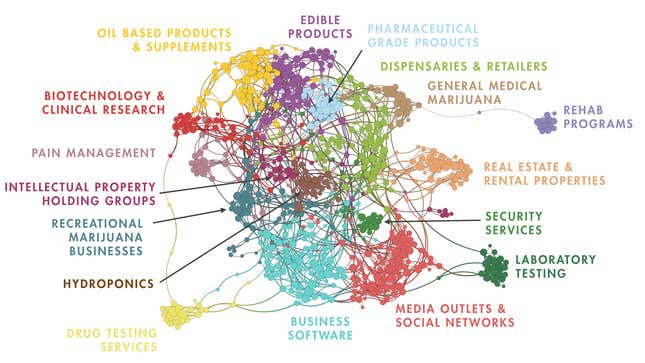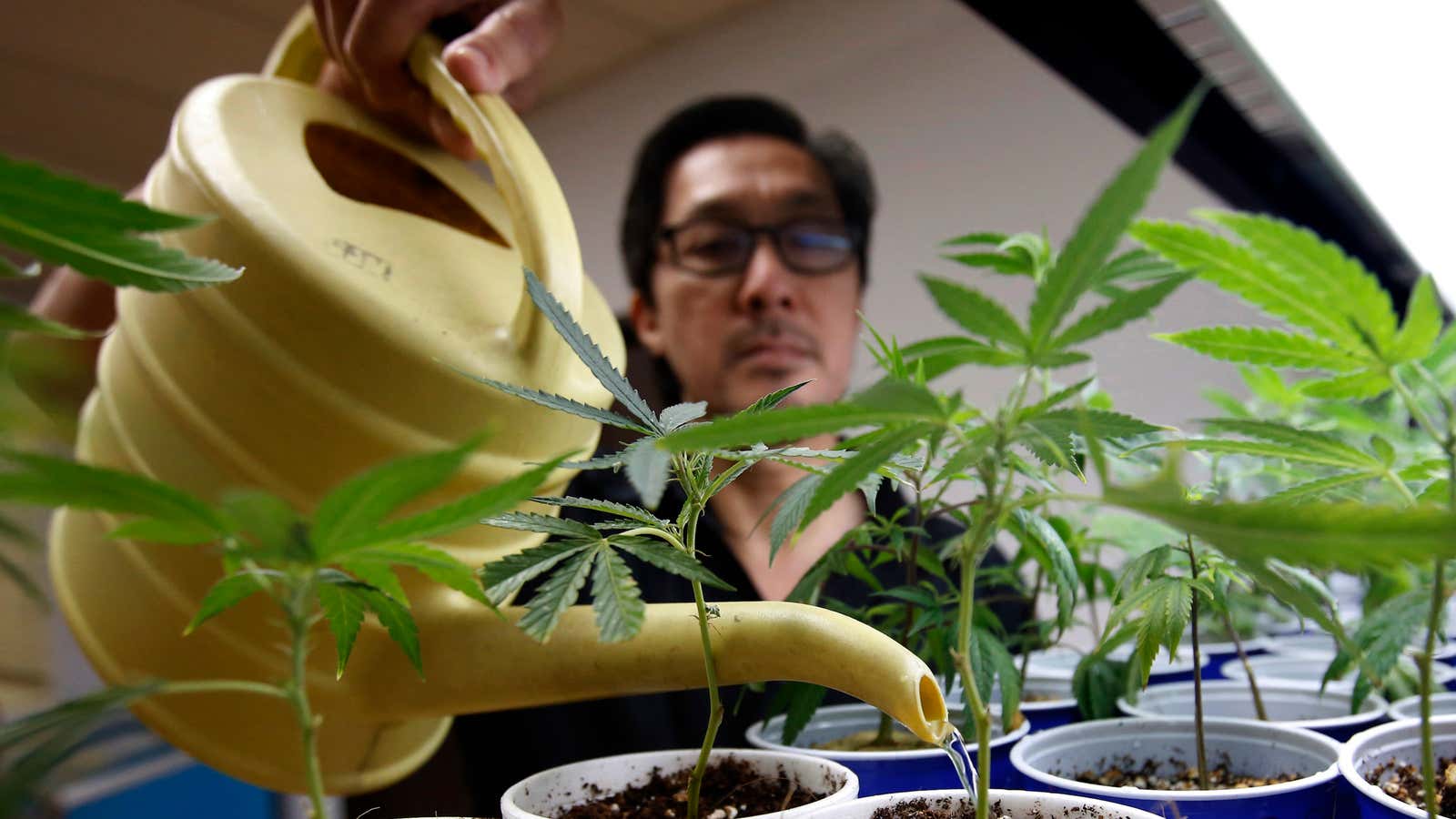Fresh off an election day that increased the number of Americans who can get legally high to one in five, the business of weed is booming. There are now 727 companies companies dealing in cannabis, and combined, they’ve gotten $1.2 billion in total investment, reports analytics and data visualization firm Quid.
As marijuana leaves the black market behind, the business of working with the stuff is starting to look a lot like other industrial sectors: downright boring. Quid analyzed thousands of firms and investments since 2011 to see how the industry is maturing, and found that there’s been an explosion of the support services that already exist for other industries.

The largest number of new cannabis companies are in the media and business software sectors. Now that they’re above board, pot growers need logistics and accounting software, too.
There’s no shortage of off-beat ideas in the marijuana industry (pot gyms, anyone?), but cannabis firms are entering their second growth phase. The first wave of cannabis investment financed suppliers, producers, and distributors, and peaked at about $120 million during the first quarter of 2014. It has remained around $20 million per quarter ever since. Now, the money is shifting to companies that help growers market, sell, transport, and optimize the supply chain. Investment in business services, especially software and media outlets—like pot TV channels and B2B publications—have spiked from virtually nothing in 2012-2013 to about $70 million in Q2 2016, reports Quid.
The US is only just emerging from marijuana prohibition, but pot is already big business. Legal sales topped $4 billion this year. Americans are now heavily in favor of legalizing the marijuana: 60% say pot should be legal, according to Gallup polls.
More states than ever permit sales. California, Nevada, Maine, Massachusetts, and Arizona all voted on Nov. 8 to legalize recreational marijuana for adults older than 21. They will join the District of Columbia, Colorado, Washington, Alaska and Oregon as states that already permit it. Four states—Florida, Arkansas, North Dakota, and Montana—voted to ease access to medical cannabis.
There’s still one major risk for new marijuana businesses: the US government. The Drug Enforcement Administration still classifies marijuana as a “Schedule 1” drug with “no currently accepted medical use and a high potential for abuse,” despite the scientific evidence to the contrary. But president-elect Donald Trump has suggested that under his administration, states may be able to set their own marijuana-related laws without federal interference.
